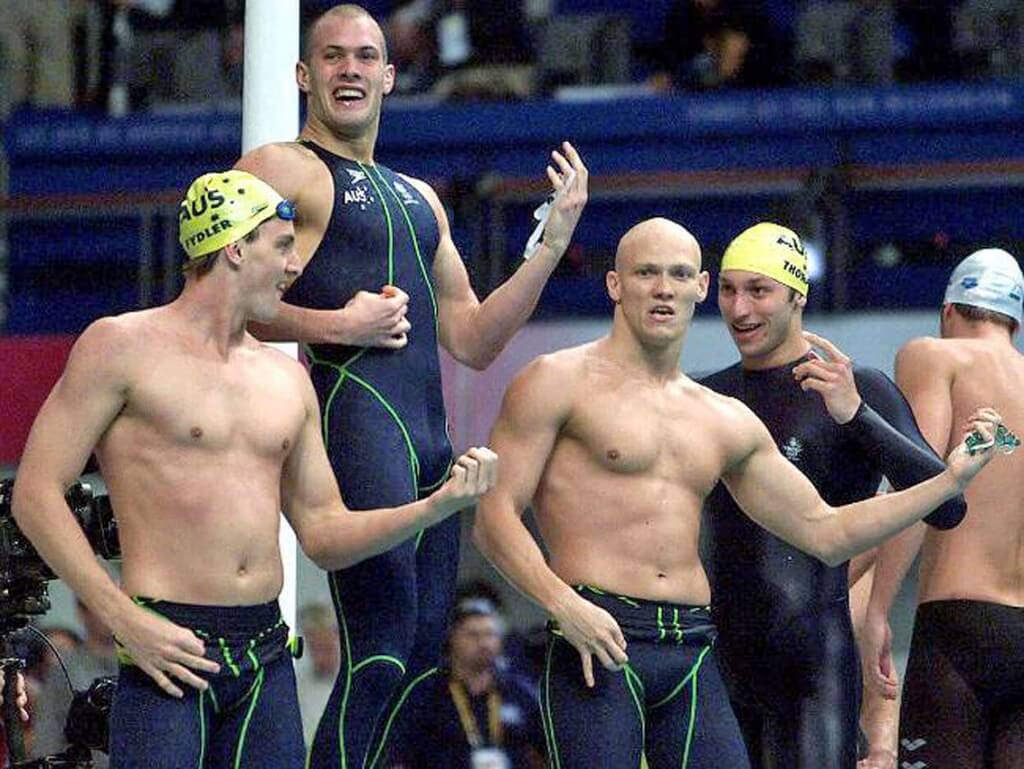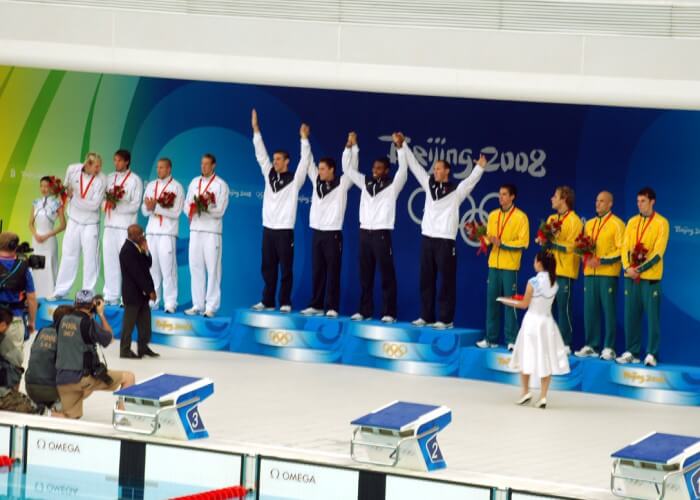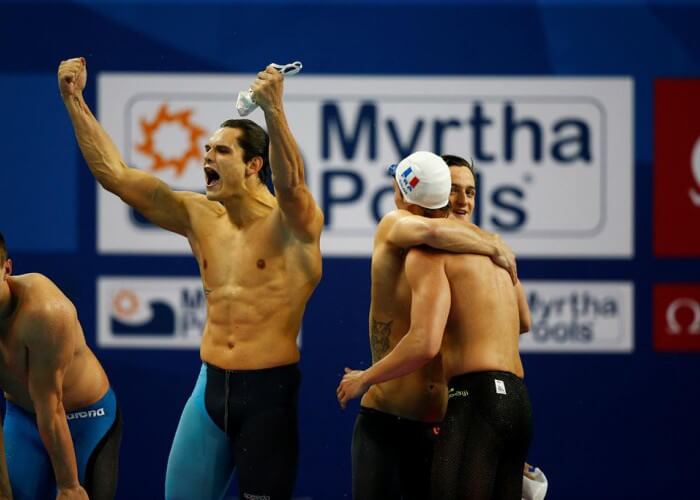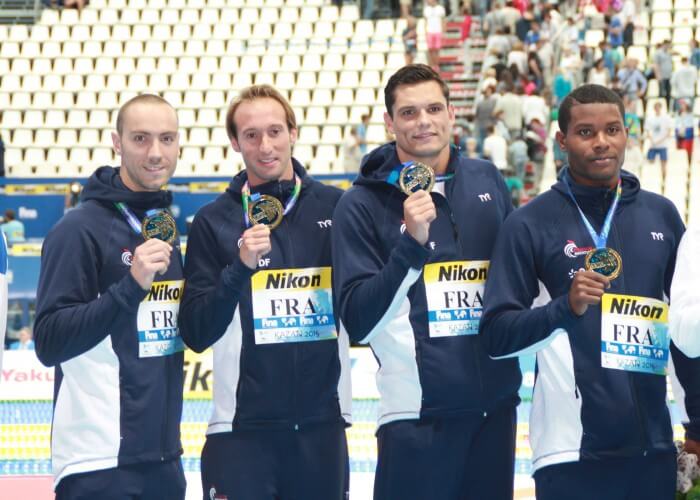A Shift in Dominance in the Men’s 400 Freestyle Relay

By Kevin Gill, Swimming World College Intern.
The United States men’s national team has been the top nation in the sport of swimming for as a long as most people can remember, including this past summer at the Olympic Games. This dominance is clear in events like the 100 backstroke, an event the US has won gold in the last six Olympics, or the 400 medley relay, where the Americans have struck gold in every Games that they competed in.
Although the United States has a great history in coming out on top, the modern age of swimming has seen a growing challenge from the rest of the world. This heightened competitiveness is best illustrated in the 400 free relay, one of the sport’s most famous races.
Through the 1996 Games in Atlanta, the United States had won every 400 freestyle relay that was contested in Olympic history. Swimmers including Gary Hall Jr., Matt Biondi and Rowdy Gaines had established sprinting dominance for the US.
In Sydney at the 2000 Olympics, the stage was set for Australia to upset the mighty Americans. After a world record-setting lead-off leg from Michael Klim, Ian Thorpe was able to run down Hall Jr. on the anchor leg. Australia had broken the streak and paved the way for other nations to challenge the dominance of Team USA.
This ground breaking upset in Sydney seemed to humanize the Americans in the eyes of the rest of the world. At the 2004 Games, the U.S. finished third while South Africa, at the time a nontraditional swimming nation, won the gold. This win changed the scope of swimming in South Africa, as seen by the more recent performances from Chad le Clos and Cameron van der Burgh.
The Americans were able to bring the gold back to US soil in dramatic, historic fashion at the Beijing Games, and won again the 2009 FINA World Championships. Yet, after those two winning performances, Team USA struggled to maintain the top position in one of swimming’s most popular races.

James Magnussen led the Aussies back to the top in the 400 free relay at the 2011 Worlds. One year later, Yannick Agnel ran down Ryan Lochte to steal the Olympic gold from the Americans in London. The French team went on to claim gold at the 2013 and 2015 worlds before Michael Phelps and the Americans scored the top position on the podium in Rio.
This back-and-forth competition between the swimming world’s top nations in this event has raised much popularity in the sport over the last fifteen years. Sports fan knew about the strong comments made by the French swimmers before the race in 2008, and everyone got chills watching Jason Lezak do what appeared to be unthinkable. This race has provided some of the most dramatic and iconic moments in the sport’s history.

In addition to the inspiration the 400 free relay has given, this race is somewhat symbolic of the swimming world. The United States has been the number one powerhouse in the sport for so long and the Americans continue to push the boundaries of what is possible. But over recent years, the rest of the world has began to catch up with the US dominance.
At the 2015 world championships in Kazan, the US won the most medals out of any nation. But in what many regard as a disappointing year for the Americans, it could be argued that they were not the most impressive team at the meet. Australia finished with an amazing seven gold medals, one shy of the US. The men in red, white, and blue won just one relay at the meet and did not even make the final in the 400 free relay.
Although the United States put on a much more dominant performance at last summer’s Olympics, we could still be seeing a major change in the sport of swimming. In addition to Australia, countries like Japan, China, Hungary, and Great Britain have all began to develop competitive national teams.

Photo Courtesy: Maria Dobysheva
Looking ahead at this summer’s worlds in Budapest, the 400 free relay appears to be shaping up to be as tight of a race as usual.
Lead by Caeleb Dressel and Ryan Held, the United States has a group of young sprinters ready to follow up their Olympic gold with a win this summer. Nathan Adrian will provide loads of experience to this relativity inexperienced group.
Team Australia will be without their Olympic champion Kyle Chalmers, who recently announced that he has withdrawn from the meet due to health concerns. Even without Chalmers, the Aussies will be a major threat with Cameron McEvoy, the fastest swimmer in a textile suit over 100 meters.
Jeremy Stravius and his countrymen will look to defend their world championship gold medal for France while Vlad Morozov will lead a Russian team who is consistently in the conversation for a medal.
No matter who comes out on top, fans will be on the edge of their seats the entire race as they watch the world of swimming change in front of their eyes.
All commentaries are the opinion of the author and do not necessarily reflect the views of Swimming World Magazine nor its staff.




Youssef Yasser /Marwa Elshenawy/Shahd Yasser